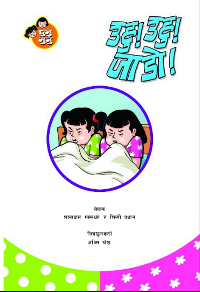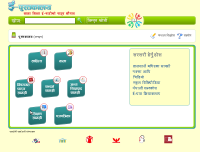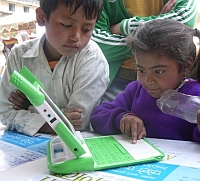Students in developed countries take for granted the abundance of local libraries and material in their own language on the Internet. In many developing countries, public libraries are ridiculously few in number and pitifully little local language material is available on the Internet.
Open Learning Exchange Nepal has been working on its digital library, E-Pustakalaya, since summer 2008 to address this issue for Nepal. E-Pustakalaya literally translates from Nepali into English as "E-Library."
E-Pustakalaya really began with OLE Nepal's first two test schools for OLPC in spring 2008. One of the most frequent requests from parents, teachers, and students was a digital repository of Nepali-language books.
Several accomplishments have been made and E-Pustakalaya has now been launched publicly with some basic features and content; more content as well as features will be added in the future. The Nepal Library Foundation (NLF), is the primary funder of the E-Pustakalaya. The two E-Pustakalaya coordinators have been in touch with many authors, publishers, news agencies and other relevant organisations to solicit material and are working on setting up an editorial board as well as on constantly acquiring new material.
In the process of acquiring content for the digital library, OLE Nepal has already established official partnerships with a number of organisations including Room to Read, Save the Children, Madan Puraskar Pustakalaya, Rato Bangala Foundation and World Education Nepal. OLE Nepal is currently in the process of forming a partnership with Nepal Water Conservation Foundation as well.

In April 2009, OLE Nepal will launch the pilot phase of the OLPC programme in over 25 schools in six districts in the country. This will greatly expand the reach and readership of E-Pustakalaya and we hope to get very useful feedback from these schools. Children using the laptops can access E-Pustakalaya through the intranet that OLE Nepal's network team is setting up at the schools.
The teacher-training programme conducted for the teachers from the pilot schools will include training pertaining specifically to E-Pustakalaya. This training will not just educate teachers on the basic functionalities of the digital library, but will also train them to use the material more creatively within their classrooms.
On the content side, E-Pustakalaya has a wide variety of materials already available, a total of 373 entries to date, with new materials being constantly added. The library is divided into seven main sections, namely
- Sahitya (Literature),
- Kala (Art),
- Bishayagat Pathya Samagri (Course-related Materials),
- Sandarbha Samagri (Reference Materials),
- Anya Sikshyaprad Samagri (General Educational Materials),
- Sikshan Samagri (Teaching Support Materials) and
- Patrapatrika (Newspapers and Magazines)
A Balwiki (Children's wiki) has also been set up, aimed primarily at children and we hope this will allow exchange of ideas and knowledge but we expect this to take time to fully pick up steam. Wikimedia Foundation's Wiktionary (dictionary) will also be added on our server in the very near future.
The library also has a link to OLE Nepal's E-Paath activities. E-Paath activities are interactive digital lessons and related exercises developed that meet the learning objectives of the national curriculum and supplement existing learning materials.
The E-Pustakalaya project has quickly picked up momentum and new material is constantly being added to the digital library. Authors and organisations, that have been approached, have mostly responded with enthusiasm and interest in the project, which is a novel concept to a lot of them. There is much reason to believe that there is a great number of materials that can still be collected and added to the existing archive.
Astha Thapa is the co-coordinator of the E-Pustakalaya along with Ayushma Regmi. Bryan Berry contributed to this article.




Nice work. Will there be any deploy guides or novel open source software as a result of this? For example, what runs the balwiki?
No novel open-source software is needed. We used the fedora-commons repository engine http://www.fedoracommons.org and http://sourceforge.net/projects/fez as the front-end to it.
Regular CMS's aren't ideal for a big library application because they aren't optimized for searching large databases nor for delivering large files. For this reason, we opted not to use traditional CMS's like drupal.
Balwiki is simply an instance of Mediawiki geared to Nepali children.